
TRUMP’S IMPACT ON INTERNATIONAL RELATIONS
It is slowly dawning on us all that Donald Trump was right when he said that the American election day ‘will be Brexit times 10’. In my experience, 4,000 miles across the Atlantic, people looked ten times more shocked when they saw Trump give a victory speech than when it became clear that their country had decided to leave the European Union. Much has been written about Trump’s hateful rhetoric, which has offended 282 people and places on twitter alone, and the possible ramifications of his breaking long-established domestic norms. But it is the global implications of a Trump presidency that worries people across the globe. If he makes true on his campaign promises, we would see a large-scale withdrawal …
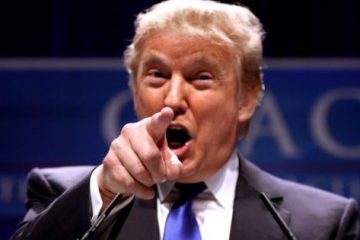
Podcast: Trump’s first 100 days
An analysis of the policy implementation of Donald Trump’s campaign promises in his first 100 days as President of the United States of America. Hailing from New York, Gabriel Delaney studies Politics at Oxford University and has experience as a presidential election field organiser in Pennsylvania for the 2012 Obama campaign. As well as critiquing Trump’s presidency, Gabriel is very good at explaining some of the mechanics of the U.S. political system. This podcast was created and first published by the Wide Open Air Exchange.

“It’s the economy stupid”: Declining labour mobility explains Trump’s victory
Donald Trump’s success in the US elections came as a surprise to both pollsters and political pundits. And since November, both have peddled numerous theories to explain their mistakes. Yet, one aspect of his electoral victory remains underappreciated: labour mobility. Labour mobility across regions is much higher in the United States compared to many other countries in the world, including the European Union members, allocating individuals into the jobs where they are the most productive. As such, mobility is an important factor for upward social mobility for middle class Americans, where they can increase their earnings and their life standards by moving to higher-earning jobs in dynamic regions. [1] But economic mobility has been declining over the last two decades.[2] …
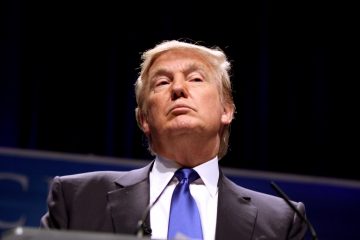
THE NEW “NEW RIGHT” – TRUMP’S POLITICAL EARTHQUAKE
Four decades ago the concurrent Thatcher and Reagan governments heralded the arrival of the “New Right” political agenda, which prioritised market forces over the primacy of “the state” in their respective countries. New Right policies followed in the 1980s, including reducing income and corporate taxes, deregulating labour and financial markets, and the promotion of market mechanisms of consumer choice into public sector services such as health and schools. “Market over state” was the mantra of the New Right but as many commentators noted, making markets requires state action (not least in public order maintenance), resulting in a redeployment of state power rather than its diminishment. Having seized power through the electoral college used to elect the President of the United …
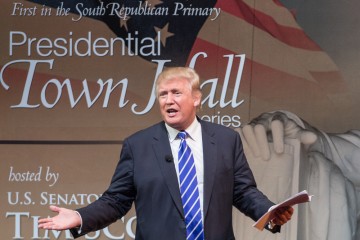
Americans Love Their General
In wake of the US Inauguration , we can look to a valuable insight provided by the great English liberal John Stuart Mill more than a century ago: everyone loves executive power—when his or her party wins the election. Representative government started to gain traction and popularity in the Western world after the democratic Revolutions of 1848. John Stuart Mill—a pioneer of Classical Liberalism—was one of its strongest advocates. Yet in Considerations on Representative Government, published in 1861, he also warned against a problem that could arise from such political arrangements. Specifically, the danger that people could begin to value their party holding power over freedom itself. ‘Members of parties are willing to abdicate his personal freedom of action into …

Trump’s “wall” vs. Clinton’s “glass ceiling”: symbolic campaigning in the US elections
When Hillary Clinton won the nomination as the Democratic Party’s presidential candidate in July 2016, she celebrated her victory speech with words that foreshadowed her campaign message: Tonight, we’ve reached a milestone in our nation’s march toward a more perfect union: the first time that a major party has nominated a woman for president…When any barrier falls in America, for anyone, it clears the way for everyone. When there are no ceilings, the sky’s the limit. In this exuberant declaration, Clinton introduced the image of the glass ceiling which spoke of a female president who would pave the way for not just her success but the success of all female Americans. This focus on women in America is closely linked …

Fake News? The blame-game in a post-Trump world
Donald Trump’s victory came as a surprise and/or shock to most pollsters, journalists, scientists, and citizens all over the world. And ever since Trump became the president-elect one question seems to be on many people’s minds: ‘who (or what) is to blame?’ The answers to this question ranges from the electoral system to international influence but one particular scapegoat is more prominent than others: the Internet. Indeed, not short after Trump’s victory Buzzfeed had identified the first villain: fake news. In their analysis they suggested ‘that top fake election news stories generated more total engagement on Facebook than top election stories’ from other serious outlets. The threat of fake news was born. And other mass media outlets followed. We have probably all …
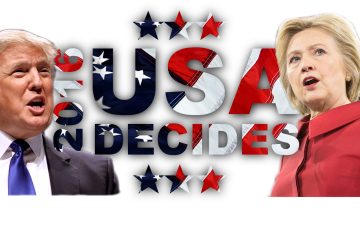
Will Congress be able to hold President Trump in check?
Donald Trump will become the 45th President of the United States in January, but will he actually be able to carry out his agenda? Nigel Bowles writes that he will largely be able to. In the areas of trade, security, taxation and judicial appointments Congress will struggle to constrain him under current law and politics. Changing immigration law and reforming the Affordable Care Act are likely to prove more challenging. Nonetheless, during the first year of the Trump presidency American politics is likely to give the appearance of being what it only rarely is: a presidential system. For better or for worse, President Trump really will be in charge. The United States constitution is Madisonian in design and spirit. Separation of powers and …
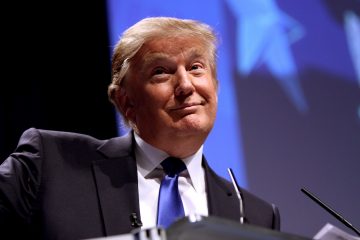
Trump has given a face to the ‘invisible hand’
What Trump may not realise, however, is that he is in fact dealing the deadliest blow so far to the neoliberal order that he feeds on. In electing Donald Trump the forty-fifth president of the United States on 8 November 2016, the American people have in fact voted against Trump and the predatory system he embodies. He may have masterfully exploited the despair of the precariat to his own advantage, yet it is the precariat, the working class struggling with chronic and manifold precarity, that is using him as a weapon against the invisible oppressive hand of neoliberalism that has ravaged the middle class since the late 1970s. Seeing this momentous vote as a motley mix of racism, ignorance and …









